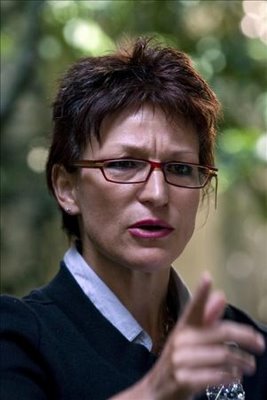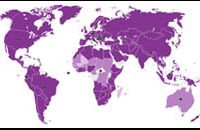“Mapping the terrain of civil defamation across the world ARTICLE 19 unearths otherwise hidden contours of oppression, censorship and legal intimidation,” says Dr Agnès Callamard, ARTICLE 19 Executive Director. “The findings of our research are shocking”.
Disproportionate damages, along with costly legal fees, mean that journalists and others face enormous risks when investigating issues such as corruption, crime and political decision-making. When faced with the possibility of losing their own livelihood, or bringing about the bankruptcy of their newspaper, they may choose self-censorship over public interest.
 Wake up call
Wake up call
A number of human rights organisations and inter-governmental bodies, including the United Nations Human Rights Committee and the OSCE, have recognised that treating defamation as a criminal offence is an unjustifiable limitation on freedom of expression. The United Kingdom has also recently made moves towards decriminalising defamation.
“This is a wake up call,” continues Callamard, left. “Decriminalising defamation is a crucial step towards securing the right to freedom of expression. But equally crucial is the reform of civil defamation laws which need to become narrower in scope, offer proportionate penalties and hold the public interest at their heart.”
USA: the largest damages
On average the largest damages in the 176 countries surveyed was the vast sum of US $471,221 which is 37 times the average per capita GDP across those same countries.
Whilst the USA awarded the largest damages at US $7 million in one case, courts in India and Pakistan also awarded multi- million dollar damages.
The average number of defamation cases was 160 per annum, but Sweden, the Russian Federation, Germany and Poland handle several thousand cases each.
Hinder investigative reporting
Defamation law can serve a legitimate purpose by protecting reputation from unwarranted attack and is recognised under international law as a valid restriction on freedom of expression. ARTICLE 19’s research shows, however, that civil defamation cases may be politically motivated and used to hinder investigative reporting, particularly around issues of party politics and corruption.
Claims for damages to reputation are frequently disproportionately high, with the result that journalists and editors may shy away from critical reporting in order to stay safe and avoid threats of expensive lawsuits.
In Brazil, for example, journalist Luiz Flavio Pinto was this year ordered to pay damages and legal costs totalling US$20,000 in one of two dozen cases brought against him by the Maionara family. The damages for this one case are the equivalent to more than a year’s gross income for his newspaper.
In Spain, too, a former newspaper editor, Patxi Ibarrondo, was ordered in 2007 to pay damages which included 12 per cent of his monthly disability pension to the secretary general of a political party.
Check the civil defamation maps here.





